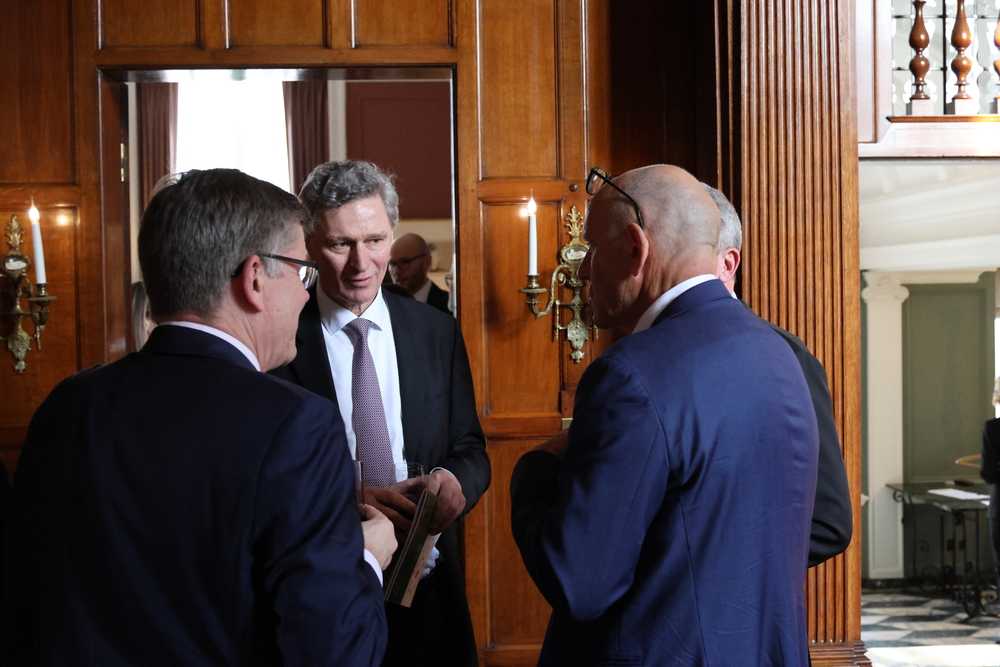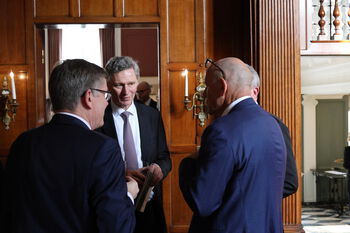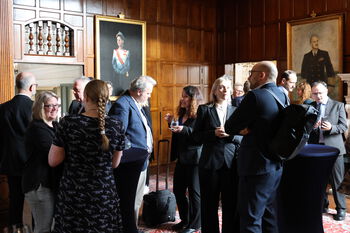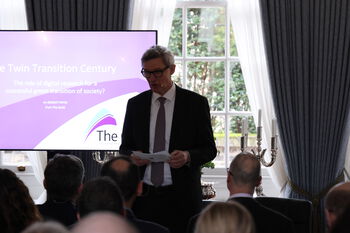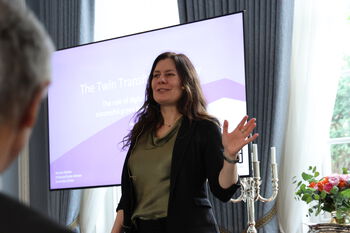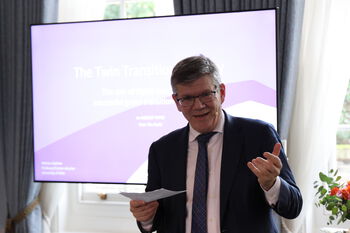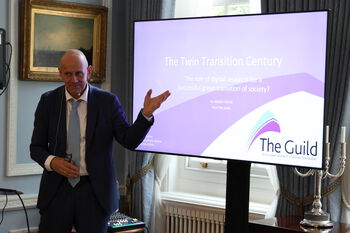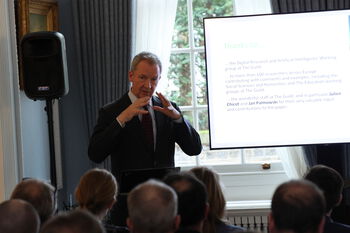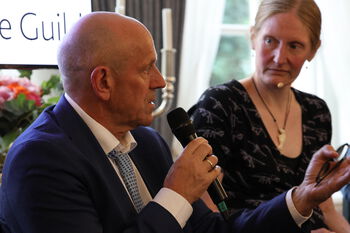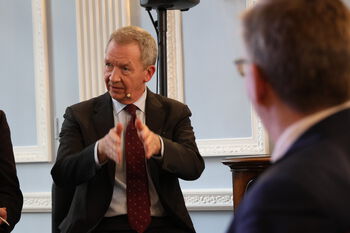The insight paper examines a world where rapid technological advancements and escalating environmental issues are intertwined. It highlights the need to understand and integrate the digital and green transitions to leverage their combined benefits. The insight paper offers practical strategies for addressing these challenges, suggesting clear paths forward.
The invite-only event included in-depth panel discussions on the impact of this transition on society and business, emphasising UK-Norwegian collaboration.
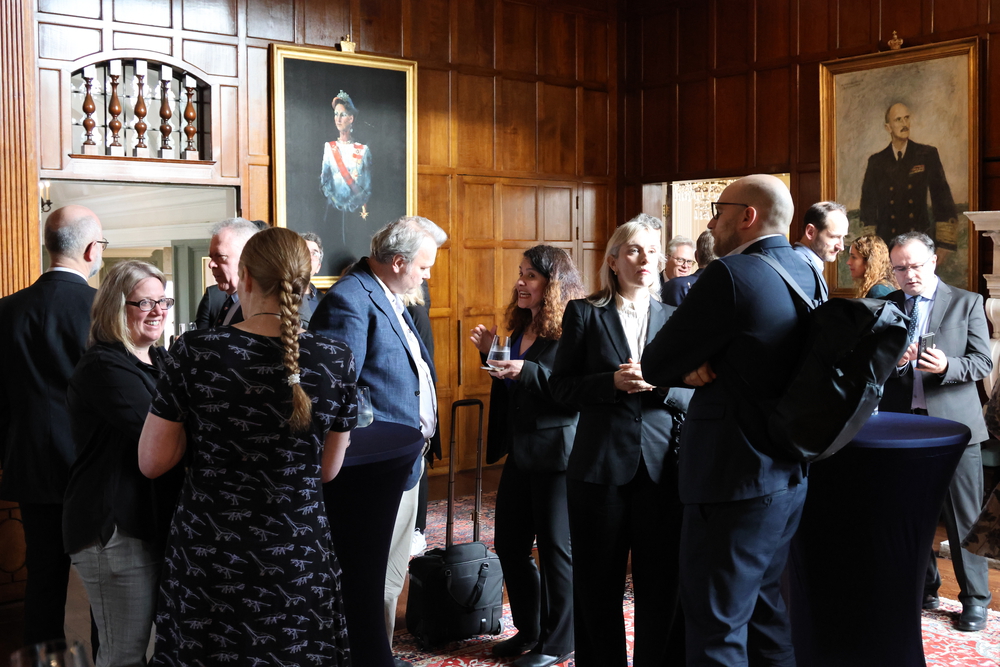
Navigating the Digital and Green Future
Norway’s Ambassador to the UK, His Excellency Tore Hattrem, welcomed guests at the Norwegian Ambassador's Residence in London, and focused on the crucial topic of the twin transition—digital and green shifts in society. He underlined Norway's commitment to environmental sustainability and digital innovation as key to achieving these goals.
"To be able to succeed, we must ensure that our actions are informed by knowledge and research, guiding us towards wise decisions and avoiding unnecessary pitfalls,” Hattrem said.
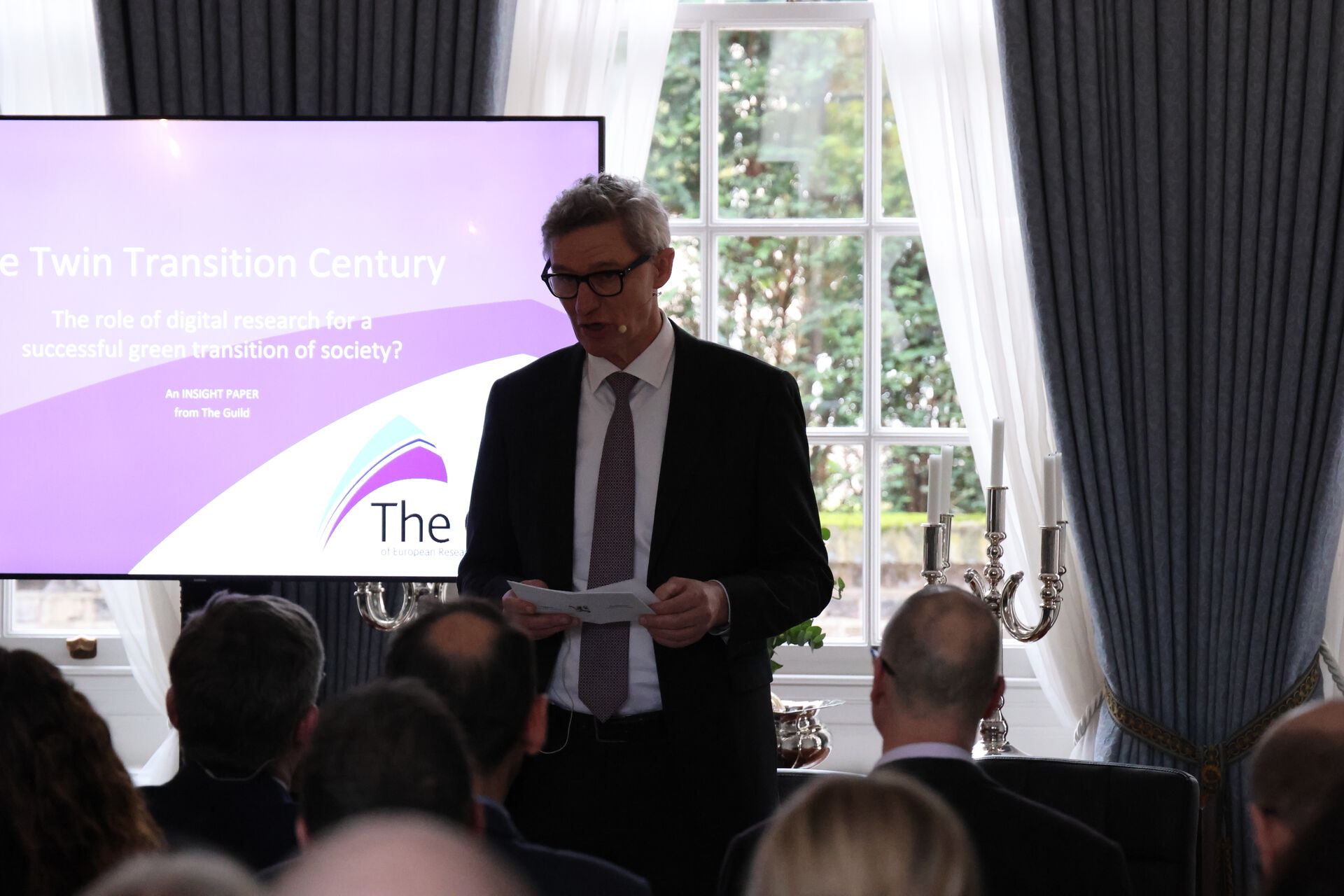
Hattrem also underscored the strong research collaboration between Norway and the UK, particularly highlighting the partnership between the University of Oslo and King’s College London??.
Global Collaboration for Twin Transitions
Next up was Marion Thain, Executive Dean, Faculty of Arts & Humanities, King’s College London.
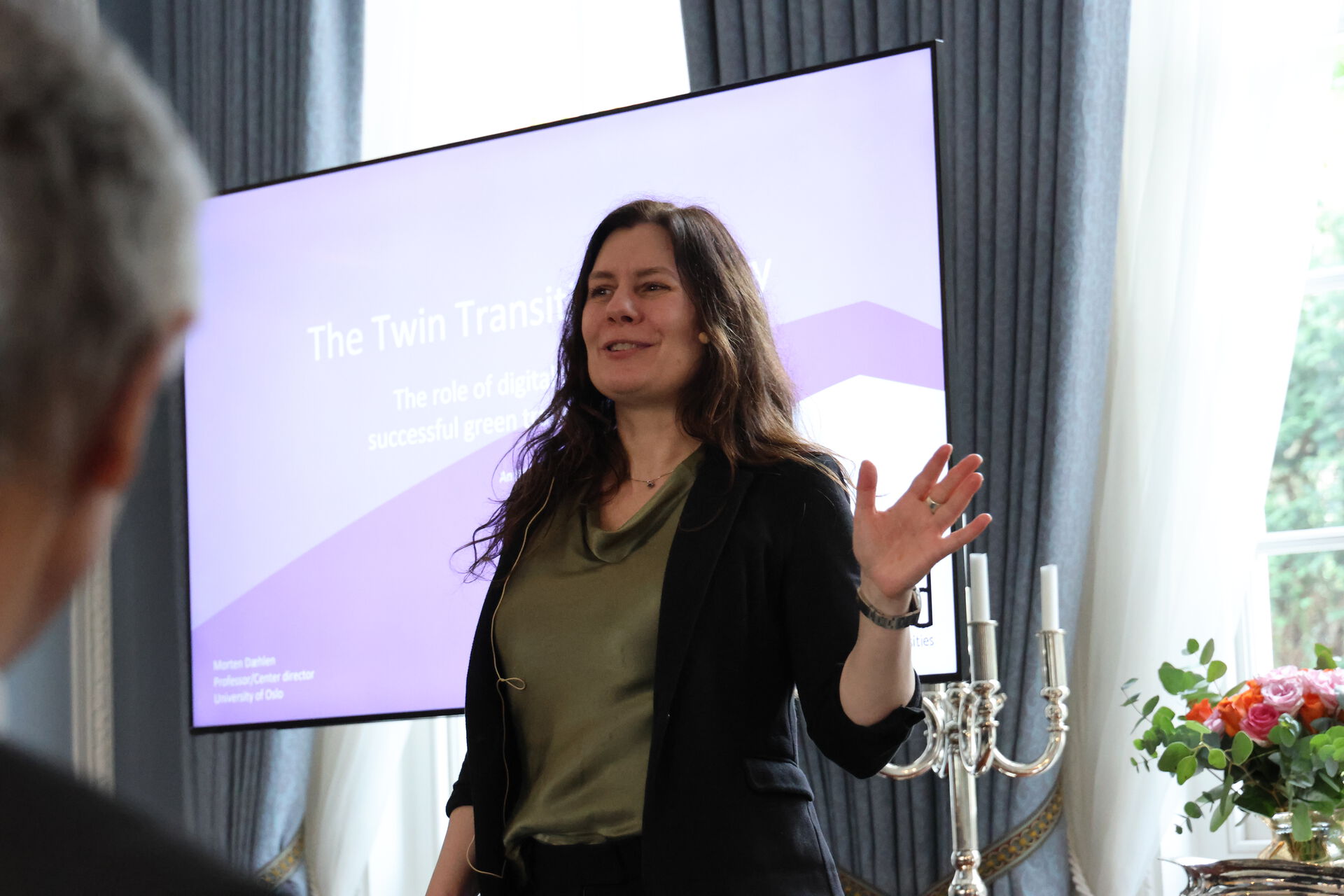
Thain's introduction emphasised the significance of the collaboration between King's College London and the University of Oslo, highlighting the venue's inspirational setting as a backdrop for discussing the twin transition of technology and green energy. She stressed the importance of international partnership and global thinking in addressing these challenges, underscoring the need for collaborative efforts to achieve meaningful progress in both digital and environmental spheres??.
"It's incredibly important, as we discuss this twin transition, that we're thinking about this in partnership. We're thinking about this internationally. We're thinking about this globally"??, Thain said.
Adapting Research and Innovation to Global Challenges
In the final opening talk, Svein St?len, Rector at the University of Oslo, addressed the changing landscape of research, emphasising the shift from sustainability goals to addressing global tensions and technology challenges. He stressed the importance of interdisciplinary collaboration, investment in research, and the need for solutions that align with societal values??.
"Europe is lagging behind when it comes to investment in research and innovation. We are behind USA, behind South Korea, behind Japan. China is crossing the line. They are now in front of us. And that's quite serious"??, St?len said.
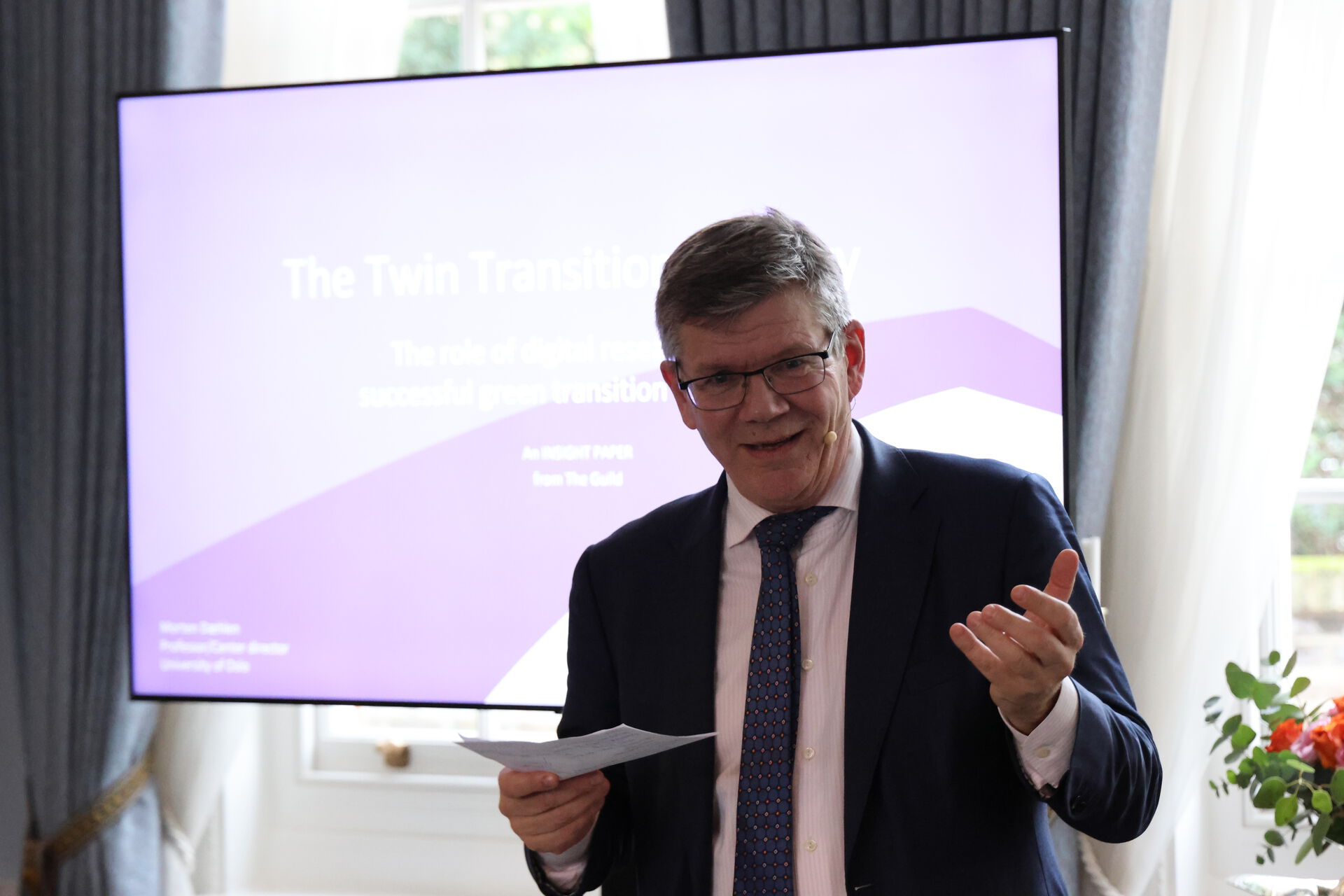
"If you look at the report for the effect of Horizon 2020 on economy, it shows that one euro of investment in research and innovation gives five euros to the benefit of European citizens. We need to join forces. We need to work across disciplines, across sectors, across national borders, and we need private investments also, public-private partnerships"??, St?len said.
Presentation of the Insight Paper
Author of the paper, Professor Morten D?hlen from University of Oslo, presented the Insight paper The Twin Transition Century: The role of digital research for a successful Green Transition of Society.
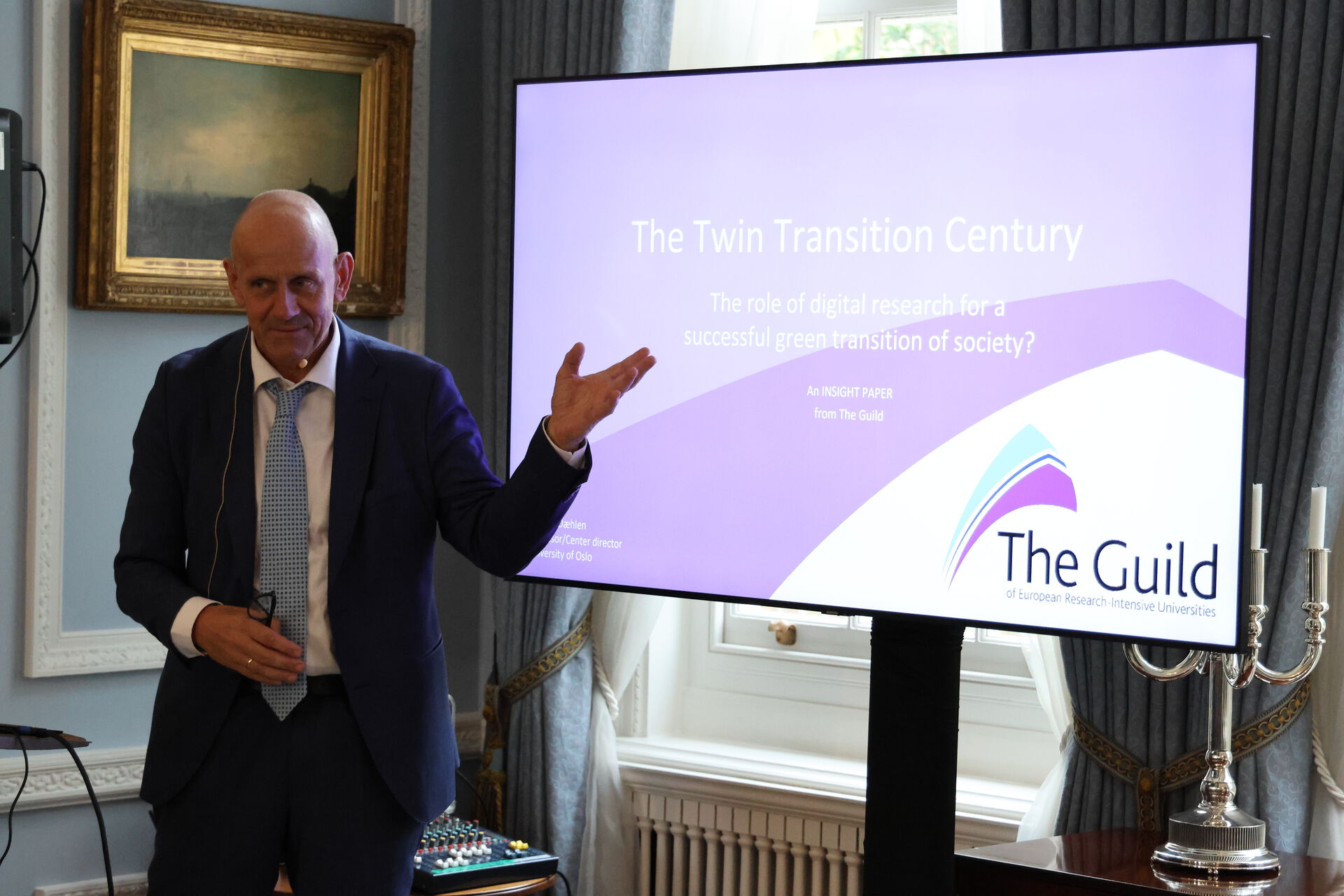
Morten D?hlen's presentation focused on the Insight Paper that addresses Europe's digital research agenda to support a successful green transition of society. He outlined the paper's aim to tackle both enhancing digital research for green transition and making the digital sector itself greener. Highlighting the crucial backdrop of climate change and environmental degradation, D?hlen emphasised the intertwined nature of the twin transitions (digital and green) and the need for actions that balance long-term visions with immediate steps.
The presentation covered key areas of digital research important for the green transition, including data science, connectivity, sensor technologies, and digital governance. It also addressed ways to make the digital world greener, focusing on data sharing, edge intelligence, green computing, and recycling.
D?hlen called for interdisciplinary efforts, touching on energy transitions, nature preservation, and social equity. He presented examples of ongoing university initiatives that align with the report's recommendations and emphasised the importance of collaborative actions across disciplines and sectors for achieving sustainable transitions??.
The Essential Role of Arts and Humanities
This was supported by Professor Marion Thain, King’s College London, and advocated for interdisciplinary approaches and the inclusion of arts, humanities, and social sciences.
"We need the arts in there as well as the humanities, as well as the social sciences. So the truth is that change happens really at an individual level"??.
"We see the same in relation to the environmental challenge. We will and we are developing some great technical solutions to some of the problems we're facing. But unless we can effect change at the level of every individual, we're not going to get where we need to be"??.
Thain also highlighted the dual role of digital technologies in both facilitating and increasing energy consumption. She stressed the need for innovative, cross-disciplinary solutions to address these challenges, emphasising the importance of historical insight and creative thinking in devising future strategies??.
Comments from industry
Idar Kreutzer, NHO (Norwegian Confederation of Business), offered a business perspective on the crucial theme of twin transitions, stressing their foundational importance in today's society amidst significant global challenges.
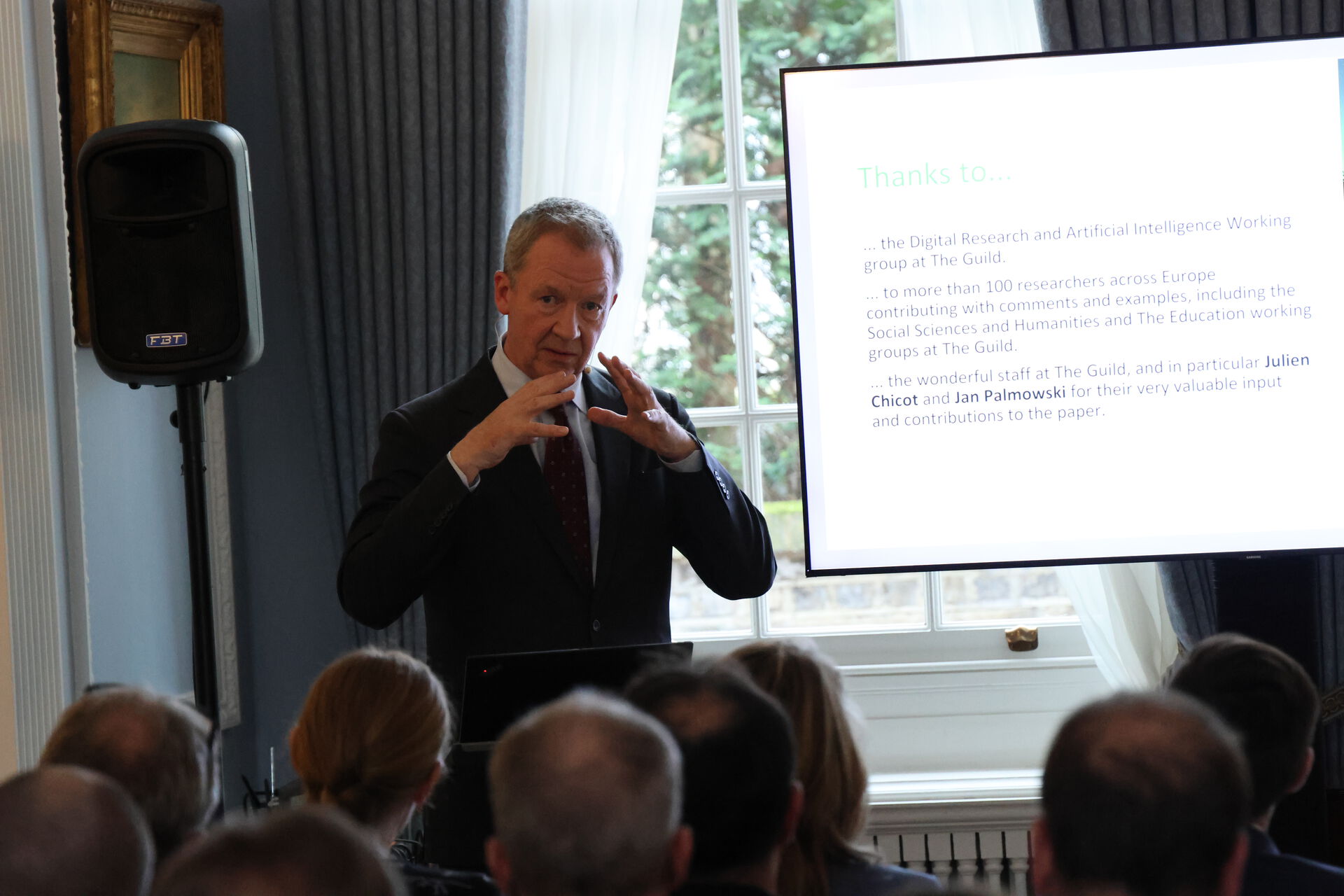
"We need to build trust-based relationships internationally. And the digital economy in its nature is disruptive, it's scalable, and it's borderless"??.
"Competitive business must be built on internationally leading science. Competence is the building block of competitive businesses"??.
Highlighting the shift in global risks from economic to environmental concerns, Kreutzer underscored the imminent rise in importance of biodiversity alongside climate change, and the critical role of emerging technologies like AI and quantum computing in national security, public services, and business competitiveness. He advocated for successful green transformation through technological advancements, financial mobilisation, and addressing the 'people factor' to ensure societal acceptance of these changes.
Kreutzer emphasised the need for interdisciplinary collaboration between academia, business, and government to create ecosystems for innovation, highlighting the University of Oslo's initiatives in fostering such partnerships. The presentation concluded with a call for international collaboration, especially between Norway and the UK, to leverage shared interests and investments in creating a sustainable future????.
Panel discussion
Following the presentation and comments regarding the Insight Paper it was time for the panel discussion.
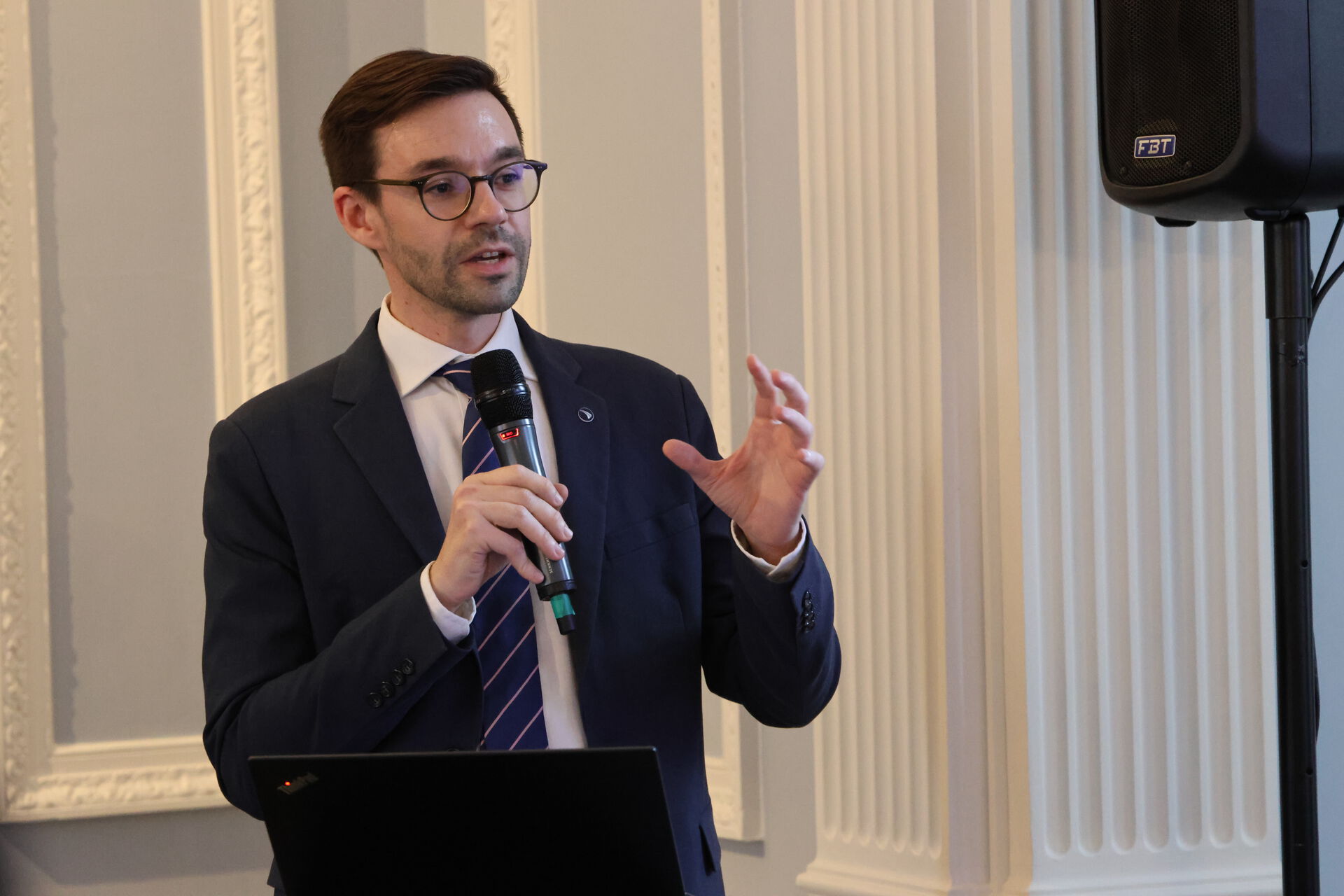
The panel discussion, moderated by Julien Chicot, Senior Policy Officer at The Guild of European Research-Intensive Universities, centred on the critical themes of the twin transitions (digital and green) and how digital technologies can foster a more sustainable and equitable economy.
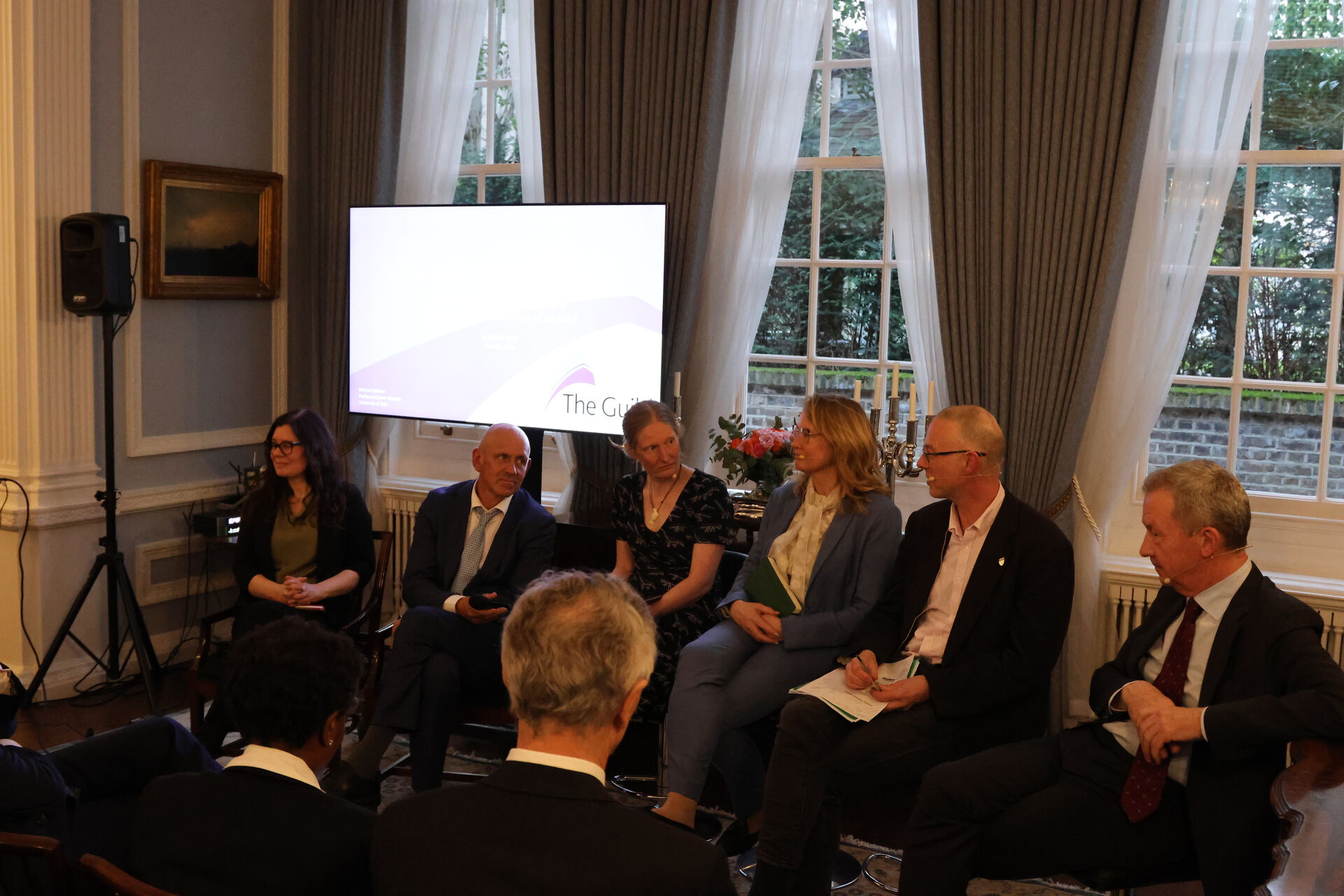
Panelists included:
- Adrian Friday, Professor of Computing & Sustainability at Lancaster University
- Astrid Kristoffersen, Group Director of Research & Development at DNV
- Signe Riemer-S?rensen, Research Manager of Analytics and AI at SINTEF
- Idar Kreutzer, Director of International Affairs for Digitalisation and Sustainable Development at the Norwegian Confederation of Business (NHO)
- Marion Thain, Executive Dean of the Faculty of Arts & Humanities at King’s College London
- Morten D?hlen, Professor of Computational Mathematics & Informatics at the University of Oslo??
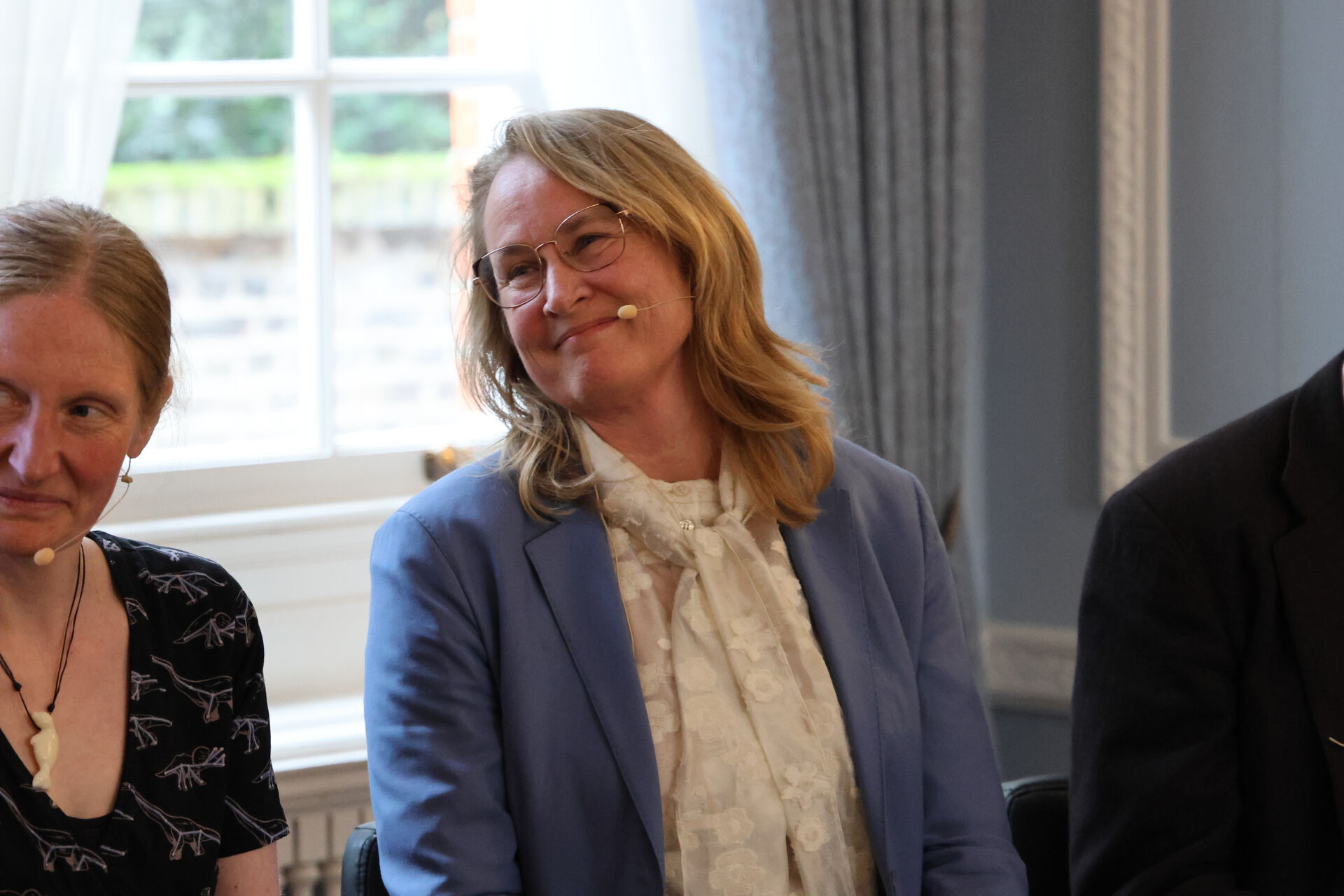
Astrid Kristoffersen highlighted the importance of using digital tools and AI to make renewable energy more cost-competitive and ensure the safety of digital and AI tools due to energy being critical infrastructure. Her focus was on making energy transitions successful through digital enhancements while stressing the importance of assurance and safety in AI technologies??.
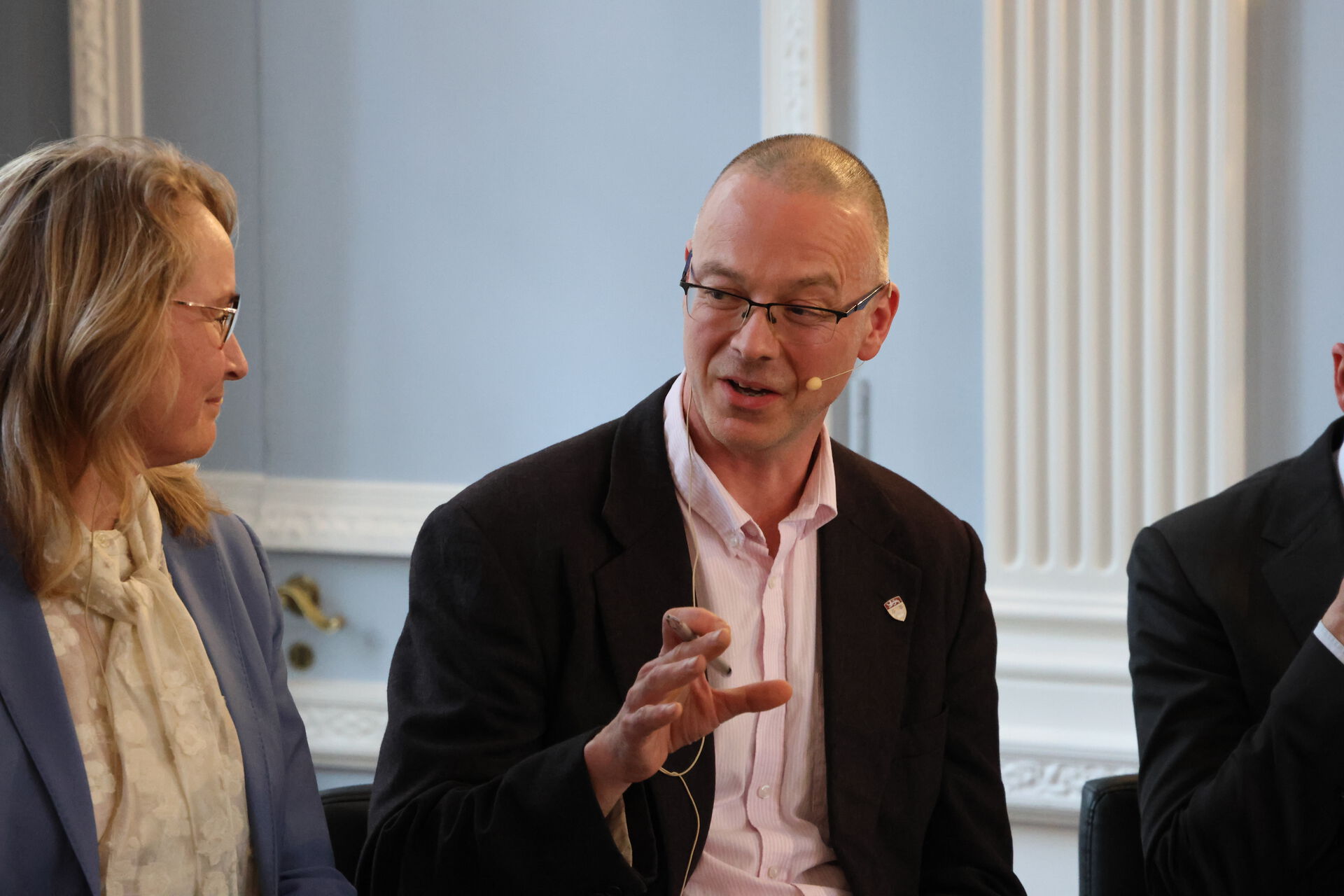
Adrian Friday shared a more cautionary view, emphasising the potential environmental impacts of increasing reliance on digital technologies. He pointed out that while digital technologies offer solutions for monitoring and controlling environmental impacts, their own energy consumption and e-waste generation could negate these benefits without radical systemic changes. Friday advocated for a balance between technological advancement and sustainable practices??.
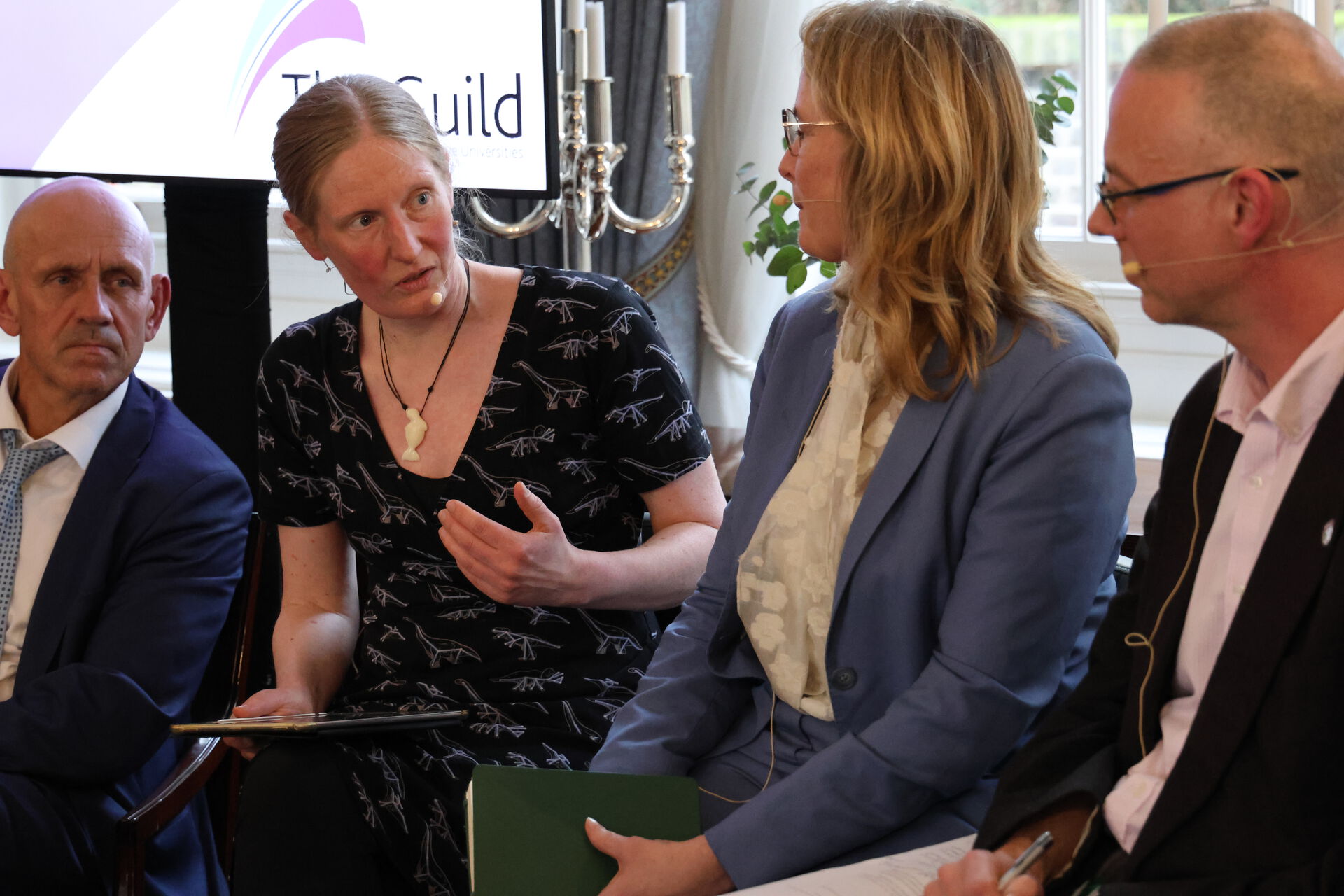
Signe Riemer-S?rensen offered an optimistic view on the role of AI in addressing climate change, noting its potential to optimise energy use in industries and integrate renewable energy into the grid. She argued for the use of AI to make incremental improvements in energy efficiency while waiting for technological breakthroughs, emphasising that significant emissions come from sectors that require more than just behavioural changes??.
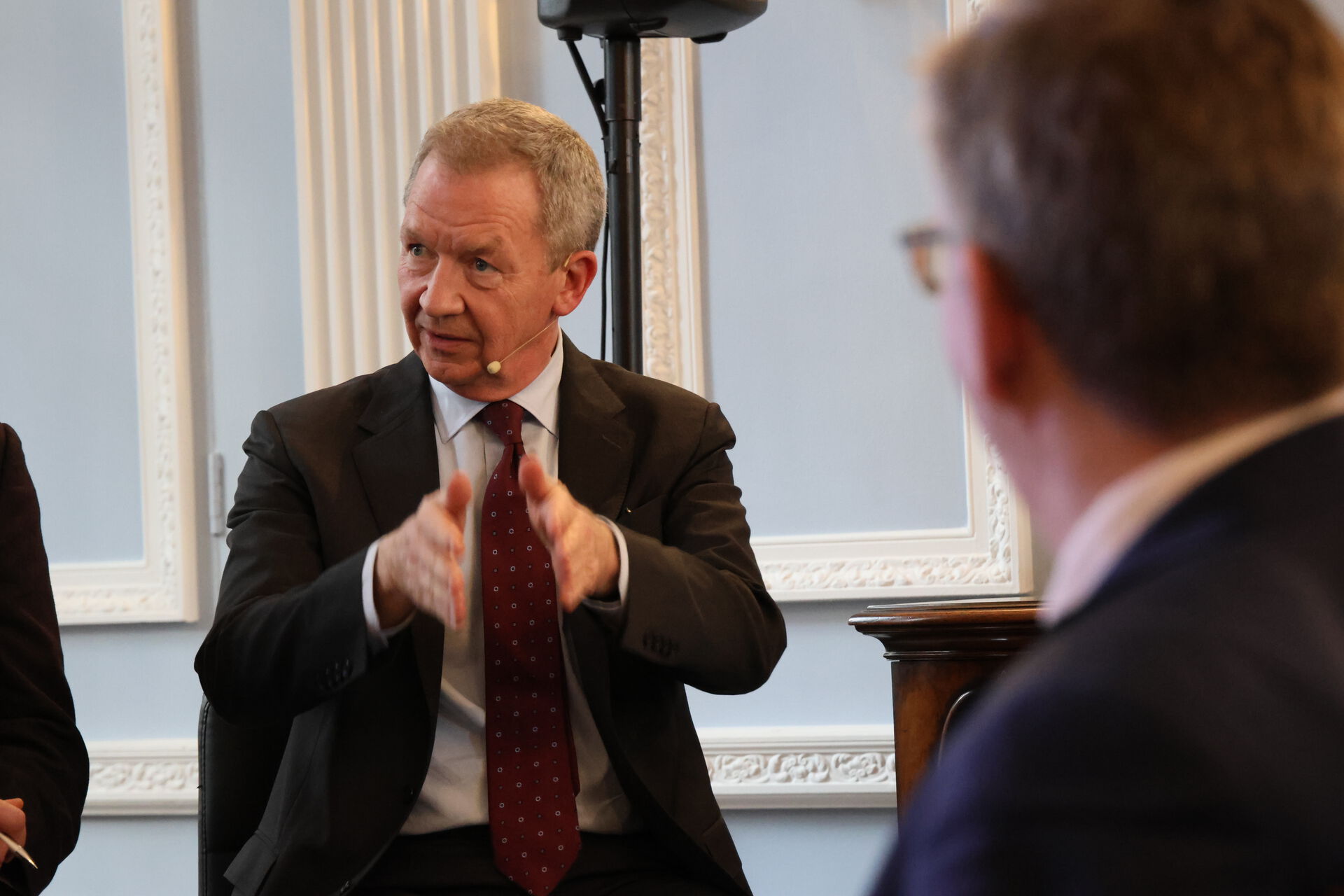
The discussion also touched on the need for interdisciplinary research to address the complexities of the twin transitions. Marion Thain spoke on integrating social sciences and humanities with technology and natural sciences to develop comprehensive solutions, stressing the importance of strong disciplinary foundations for successful interdisciplinary collaboration??.
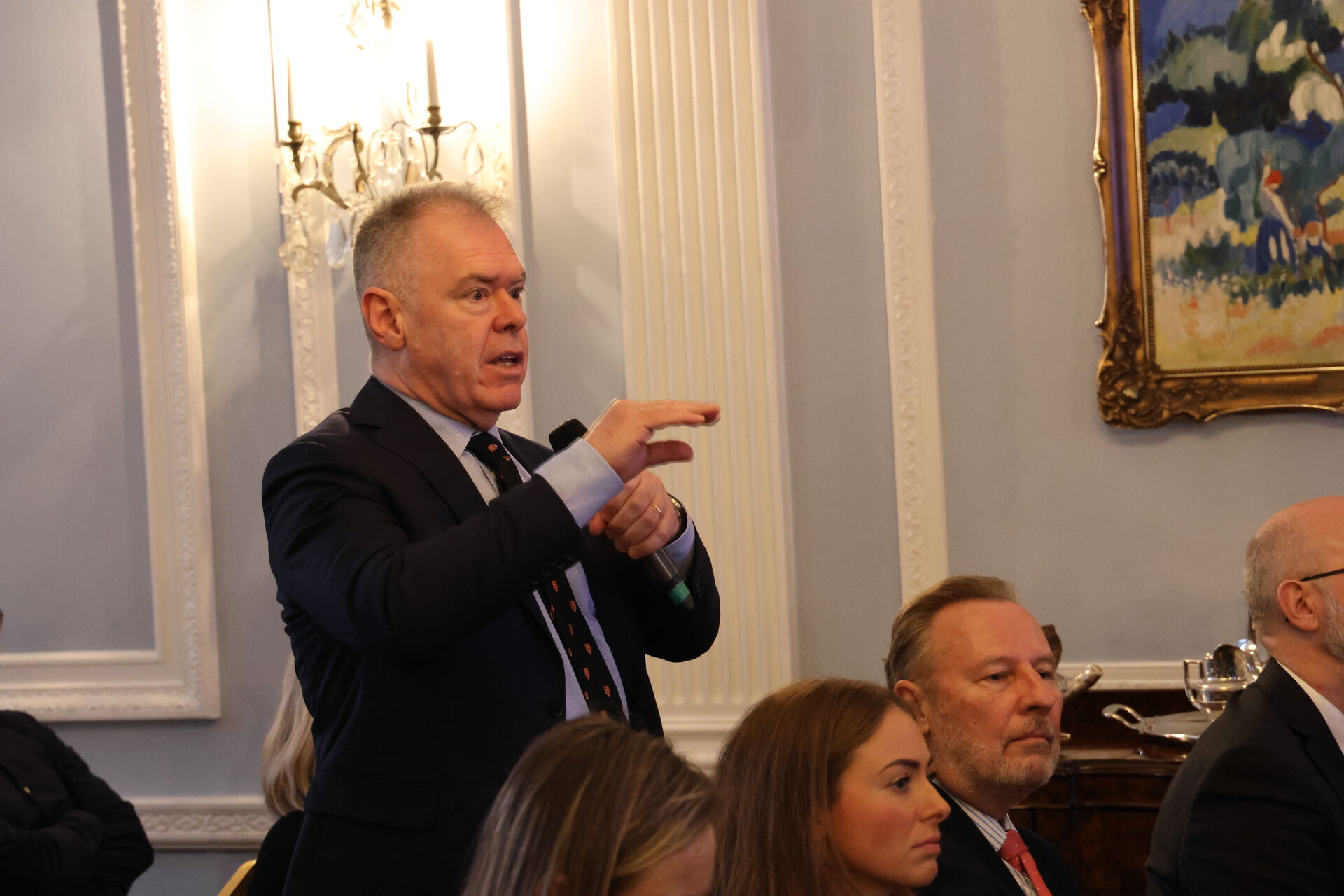
The panel underscored the necessity of using digital technologies judiciously to support environmental sustainability while recognising the importance of interdisciplinary approaches to address the broad and interconnected challenges of the twin transitions effectively.
Closing remarks
After the panel discussion it was time for closing remarks with ‘Funmi Olonisakin, VP International, Engagement & Services, King’s College London.
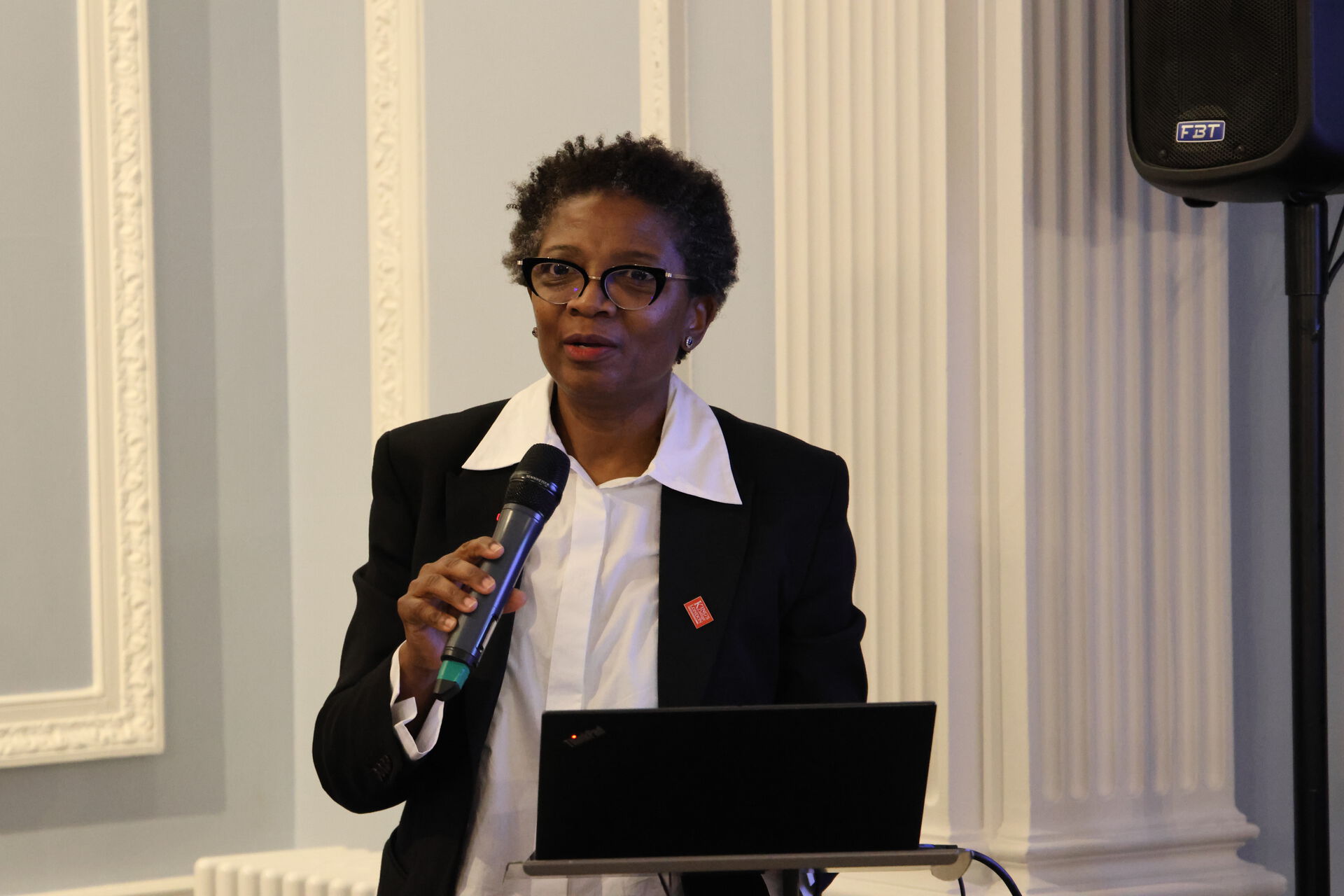
Olonisakin expressed gratitude for the insightful and transdisciplinary discussions during the event. She shared two stories to illustrate the complexities of transitioning between digital and analog ways of life and emphasised the importance of context in understanding and addressing everyday problems, particularly in rural areas like those in Kenya or Nigeria.
Olonisakin highlighted the need for interdisciplinary research partnerships to consider the social dimensions of innovation and ensure equity in global collaborations. She concluded by focusing on the excitement and importance of this work and encouraged attendees to enjoy the networking session at the Embassy while reflecting on the discussions.
End of event and networking
Julien Chicot ended the formal part of the event by expressing gratitude for the insightful discussions.
He drew parallels between the conference's themes and recent discussions on reframing research innovation policies, emphasising the importance of collaboration across disciplines and countries, as well as the need for transformation within universities.
Chicot highlighted the role of policymakers in facilitating these transformations while respecting institutional autonomy and academic freedom. He underscored ongoing discussions regarding the European research area and funding programs like Horizon Europe, emphasising the importance of adapting research innovation policies to address pressing challenges.
Chicot also dispelled the myth of researchers living in ivory towers, emphasising their active engagement with industry and public authorities to find solutions. Despite concerns about climate change, Chicot expressed optimism about the forward-thinking approach of the panel and attendees in seeking innovative solutions.
He concluded by thanking the ambassador for hosting the event and expressing gratitude to the organising team, King's College, the panellists, and the audience.
See more images from the event and network reception:
Photos: Christoffer Hals, dScience
